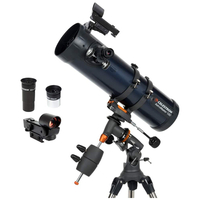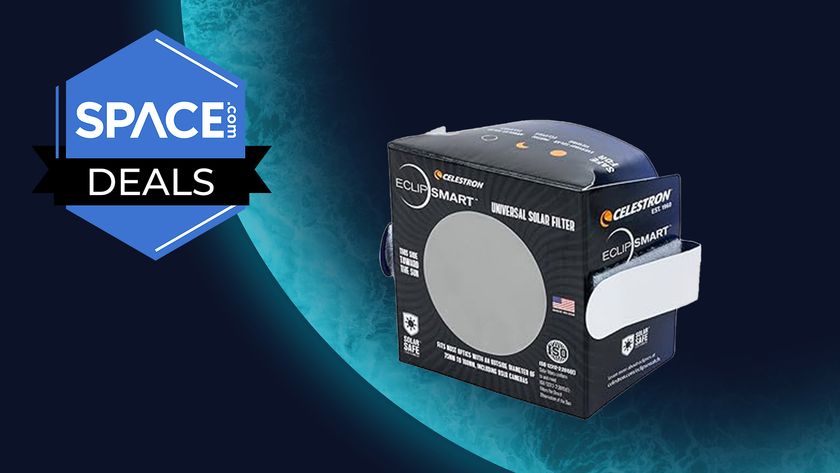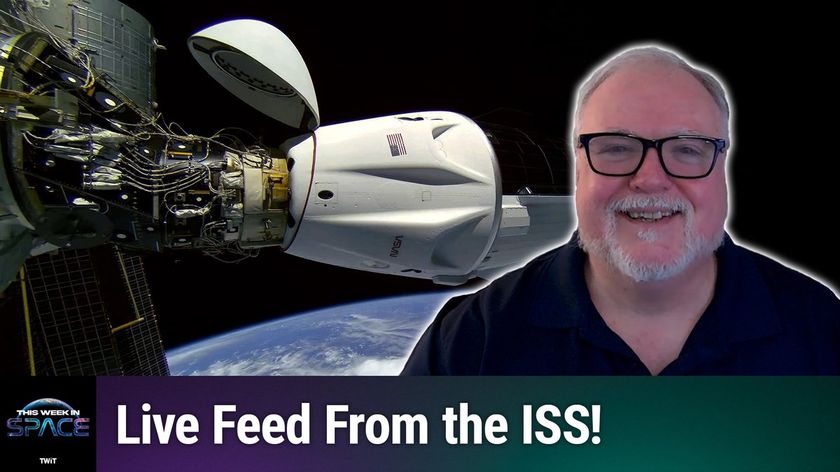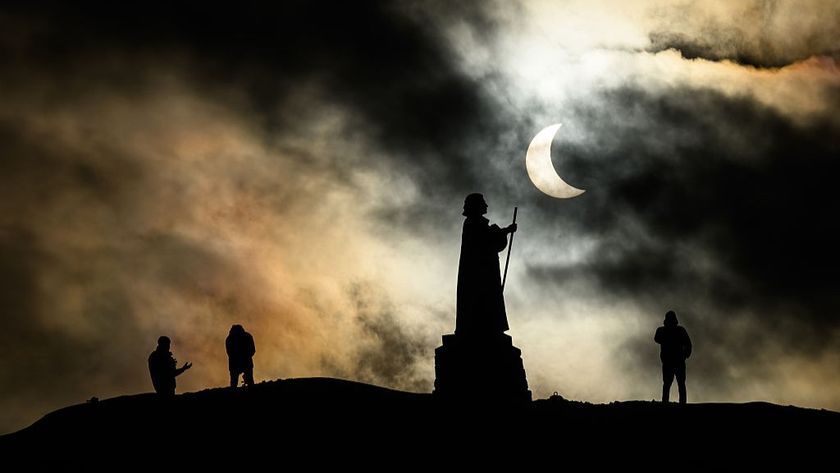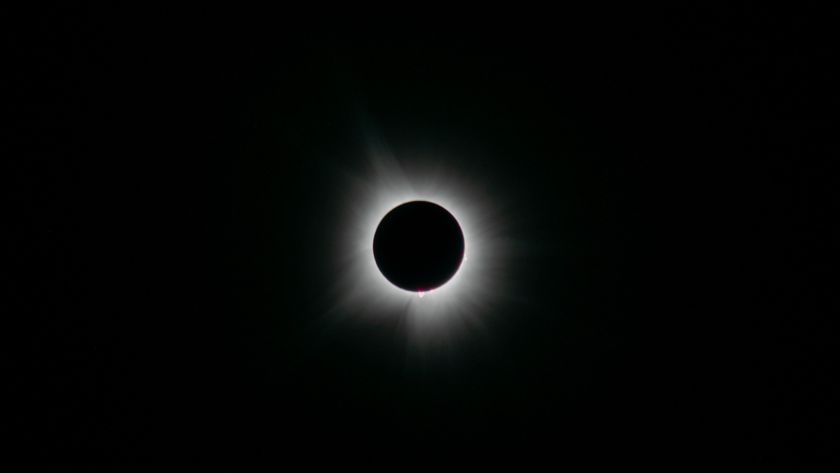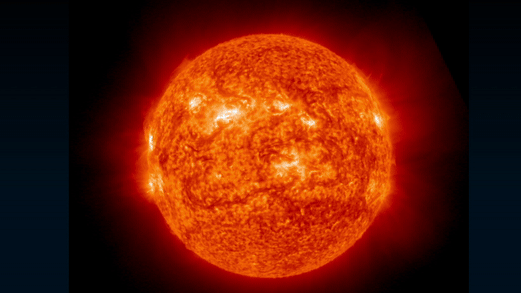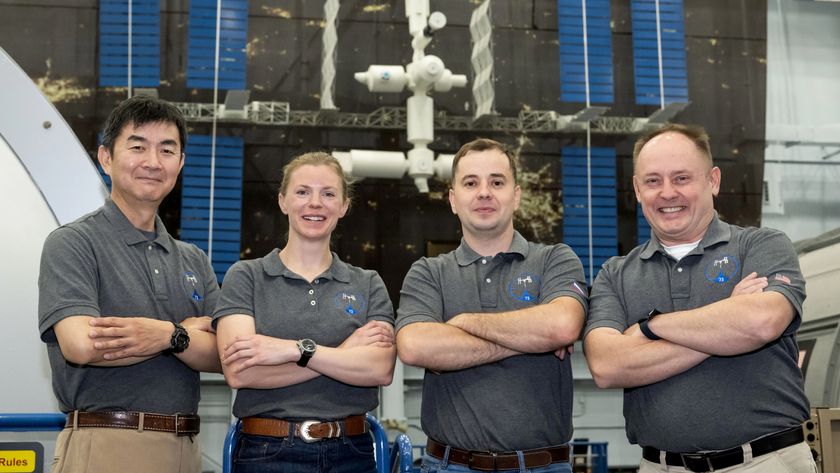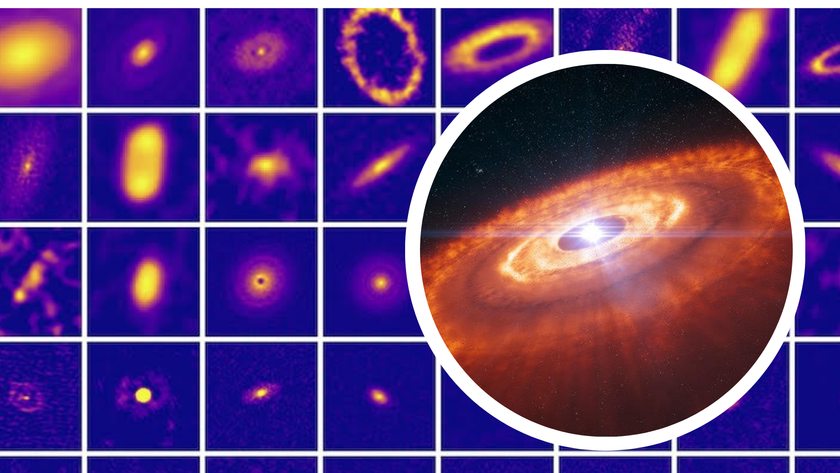Scope out $85 off the Celestron AstroMaster 130 EQ telescope
You can get a big discount on a powerful telescope that's well suited to beginners and those without much stargazing experience.
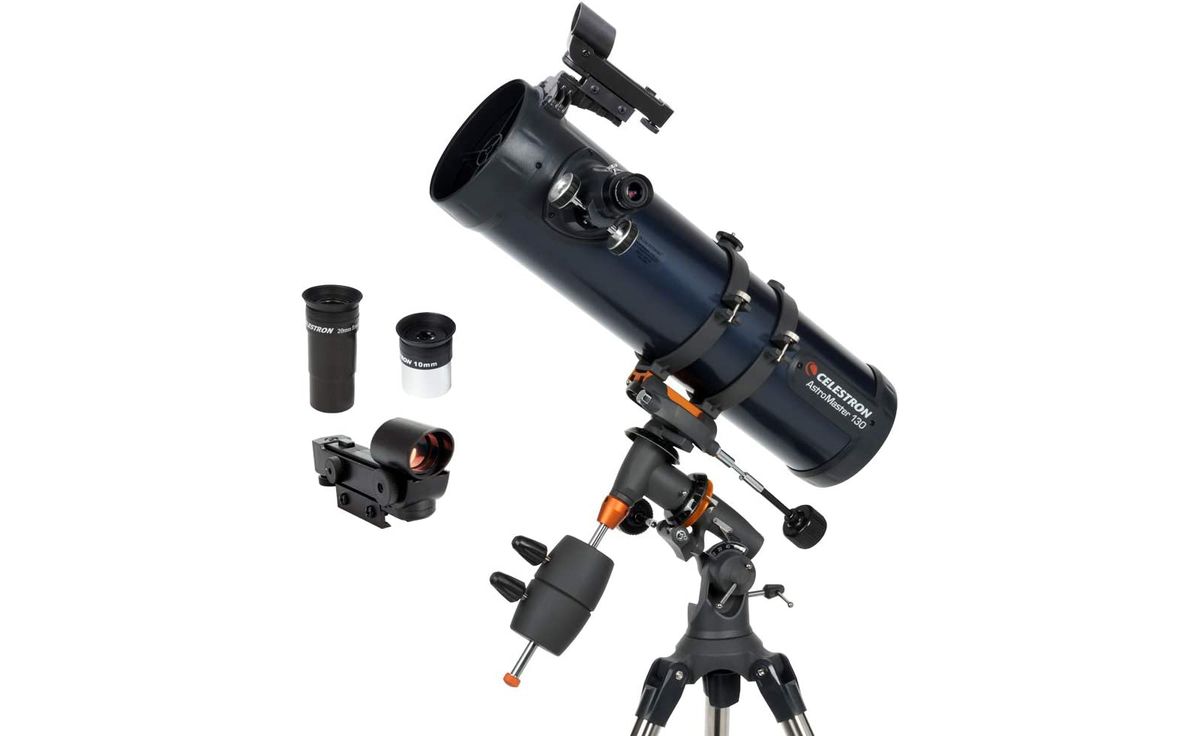
If you're looking for a new telescope or want to inspire a budding astronomer in your life then this deal on the Celestron AstroMaster 130 EQ could be perfect for you.
The $85 discount ($84.51 to be exact) means you get 24% off a Newtonian telescope that's well suited for beginners. It's easy to use and set up and it comes with a number of accessories to enhance the experience, not to mention good specs to make it worth while. It's worth noting that other telescopes in Celestron's AstroMaster range are included in our best telescopes for beginners and best budget telescopes guide.
When it comes to telescopes and discounts, we've got plenty of round-ups including guides to the best telescopes and telescope deals. However, below you can check out all the specs that make this telescope worth while including its large aperture, the mount type, the different accessories included and the length of warranty.
Celestron AstroMaster 130EQ Newtonian Telescope was $349.95 now $265.44 on Amazon.
Save nearly $85 on a telescope well suited to those without much previous experience. It's a Newtonian telescope with a 130mm aperture, Equatorial Mount and fully-coated glass optics. The accessories include two eyepieces, a tripod, a red dot finder scope, free access to Starry Night software and a two year US warranty.
Knowing the specs of a telescope is vital before getting one and the good news is, the key figures on this scope are sure to impress. First and foremost, it has good quality optics, so you get good views of your targets. A 130mm aperture allows plenty of light to pass through, making images appear brighter and it features fully-coated glass optics for crystal clear views.
The accessories are pretty cool too. Included with the telescope is a full-height tripod which helps with stability and you get two eye pieces (10mm and 20mm) as well as a red dot finder scope and a free download of Starry Night software. That has a database of over 36,000 night sky targets so learning about and tracking objects in the sky is made a lot easier. It also comes with a two year US warranty for peace of mind.
The 1000mm focal length means views of the moon and planets are optimized but it's powerful enough to view nebulas and galaxies too. Overall, this is a pretty good telescope for those without much experience, it also comes pre assembled so there's no complicated set-up. The $85 discount means it's a pretty good price to pay for it too, in fact, it's one of the lowest prices it's been on Amazon for quite some time.
Follow Alexander Cox on Twitter @Coxy_97Official. Follow us on Twitter @Spacedotcom and on Facebook.
Get the Space.com Newsletter
Breaking space news, the latest updates on rocket launches, skywatching events and more!
Join our Space Forums to keep talking space on the latest missions, night sky and more! And if you have a news tip, correction or comment, let us know at: community@space.com.

STAFF WRITER, E-commerce — Alex joined Space.com in June 2021 as staff writer covering space news, games, tech, toys and deals. Based in London, U.K. Graduating in June 2020, Alex studied Sports Journalism in the North East of England at Sunderland University. During his studies and since his graduation, Alex has been featured in local newspapers and online publications covering a range of sports from university rugby to Premier League soccer. In addition to a background in sports and journalism, Alex has a life-long love of Star Wars which started with watching the prequel trilogy and collecting toy lightsabers, he also grew up spending most Saturday evenings watching Doctor Who.
-
brianbrengle The Celestron AstroMaster 130 EQ utilizes a flat spherical 130mm/5.11 in primary mirror . Screwed into the end of the focuser drawtube that extends inside the telescope is an "image corrector lens". This compensates for spherical abberation since the telescope has a flat spherical mirror instead of a parabolic mirror. "The corrector extending the focal length in a "telephoto" type layout." In order to collimate the primary and secondary mirror properly, the "image corrector lense" that is screwed into the end of the focuser draw tube must be removed. After collimating, reinstall the "image corrector lense". This optical design is known as a "Bird-Jones" or sometimes called a "Jones-Bird" optical design.Reply
